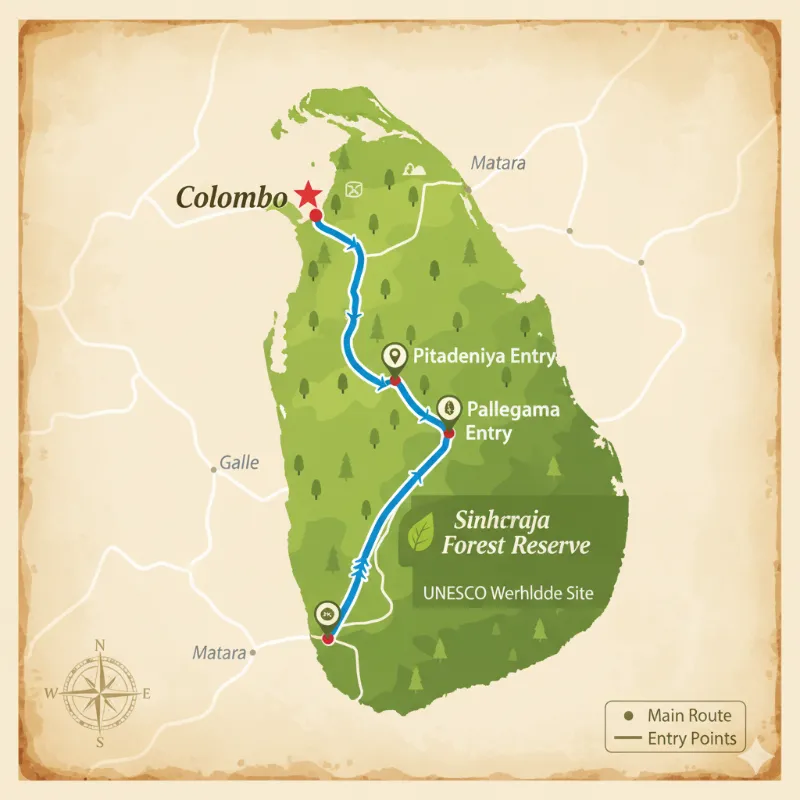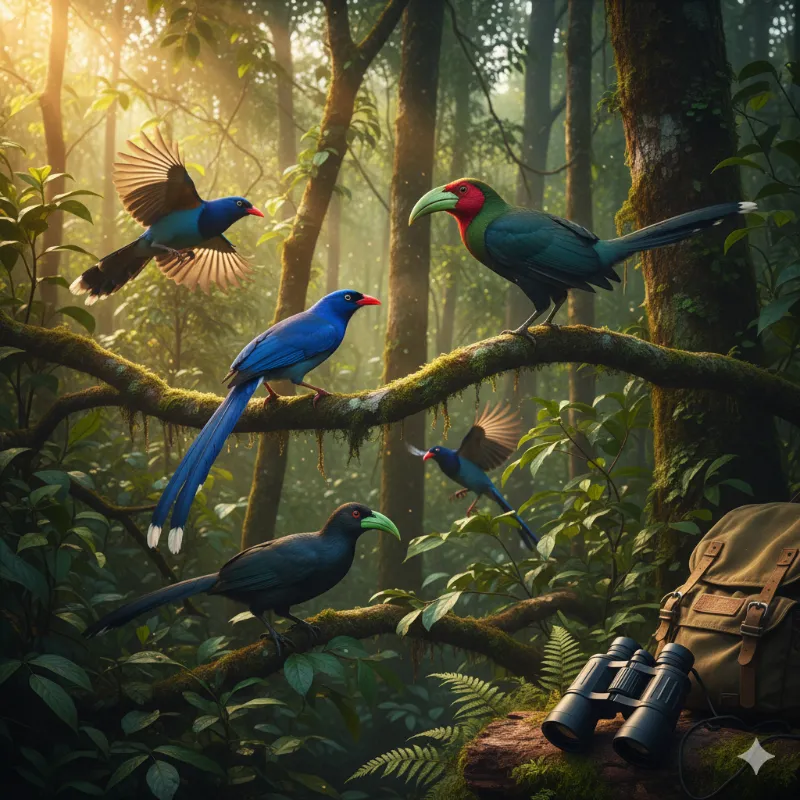Introduction
Hidden deep within the lush landscapes of Sri Lanka lies the Sinharaja Forest Reserve, the island’s last viable area of primary tropical rainforest. Recognized as a UNESCO World Heritage Site, Sinharaja is not just a forest—it’s a living museum of biodiversity. Whether you’re a nature enthusiast, birdwatcher, or an eco-traveler, this rainforest is a must-visit destination.
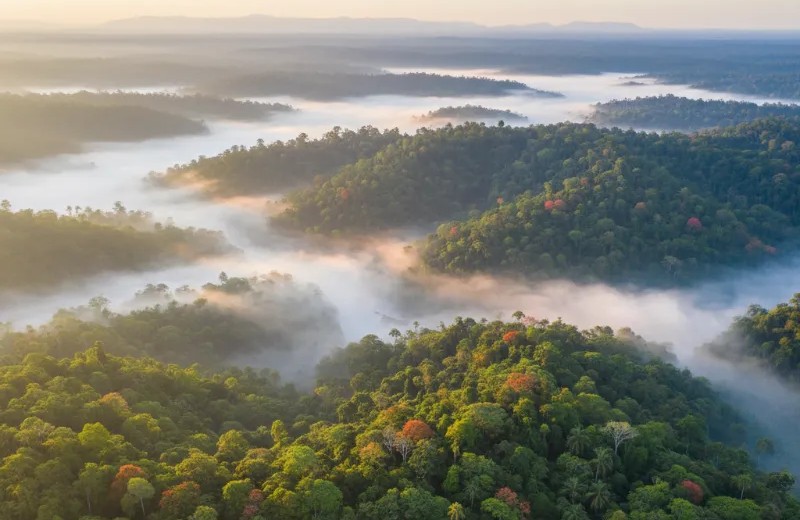
Why Sinharaja Forest Reserve is Famous
Sinharaja is world-famous for its exceptional biodiversity. About 60% of its trees are endemic, and many of them are considered rare. The forest is also home to an incredible range of wildlife, including endemic birds, amphibians, and reptiles.
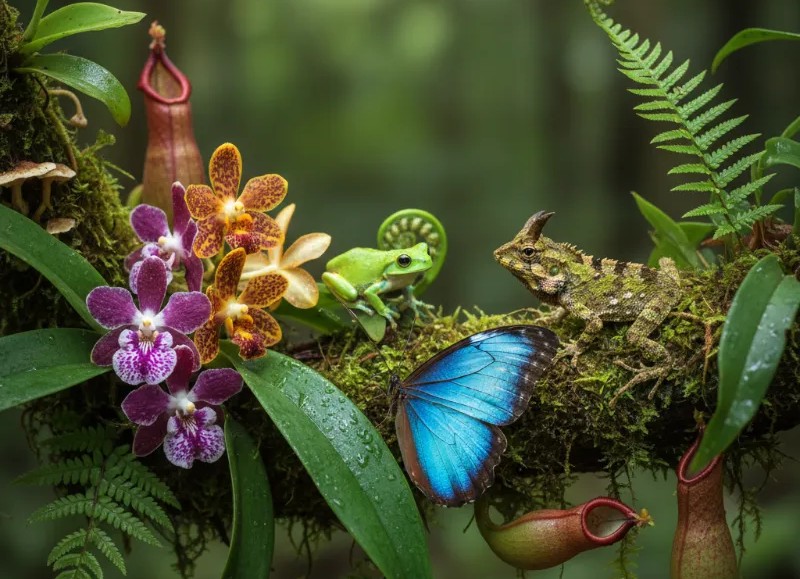
Wildlife Encounters in Sinharaja
Birdwatching Paradise: More than 147 bird species have been recorded here, including endemics like the Sri Lanka Blue Magpie and Green-billed Coucal.
Mammals and Reptiles: Visitors might spot purple-faced langurs, giant squirrels, and an array of lizards.
Butterflies and Insects: The forest is alive with delicate butterflies and unusual insects.
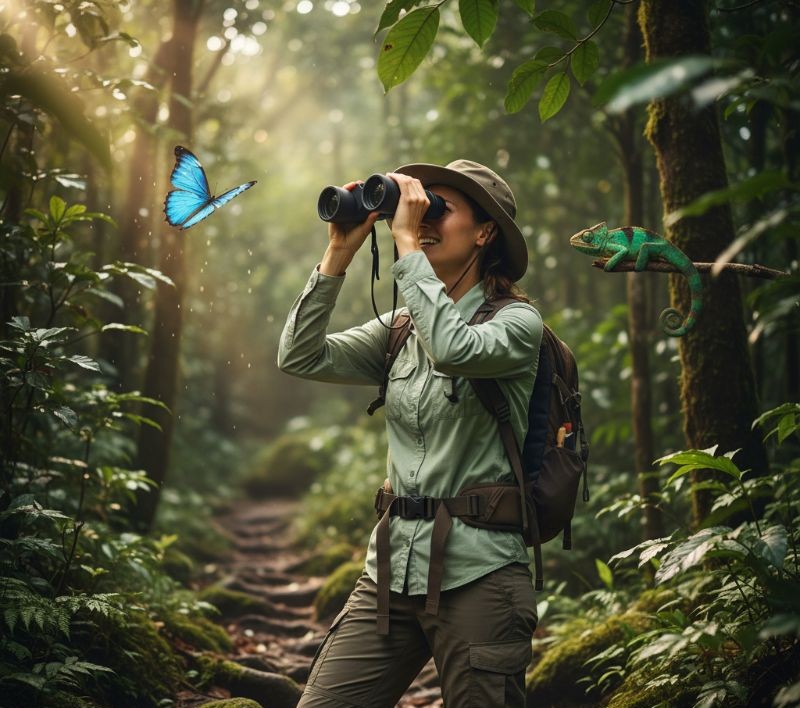
Best Time to Visit Sinharaja
The forest is open year-round, but the best time to visit is from January to May and August to December when rainfall is lower. The climate is tropical, so expect warm temperatures with occasional showers.
Things to Do in Sinharaja
🌿 Guided Nature Walks – Explore hidden trails with experienced guides.
🐦 Birdwatching Tours – Spot rare endemic species.
📸 Nature Photography – Capture misty mornings and lush greenery.
💧 Stream Treks – Small waterfalls and crystal-clear streams add to the charm.
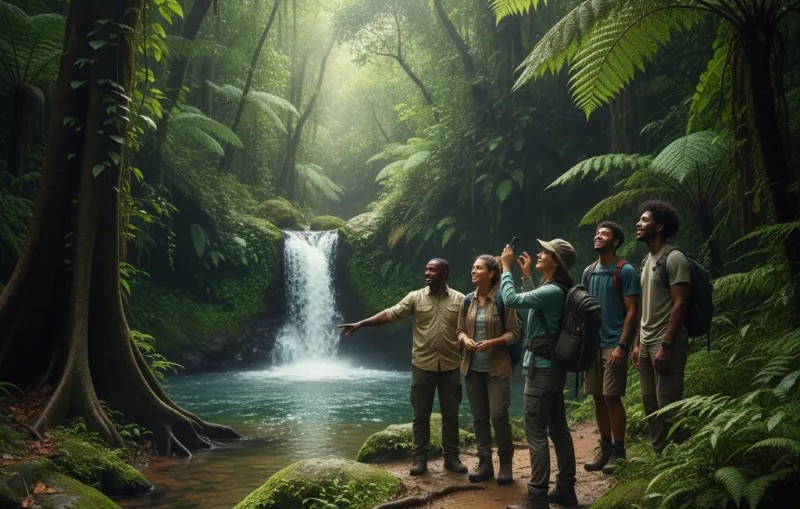
Travel Tips for Visitors
Always go with a licensed guide for safety and to fully enjoy the forest’s hidden gems.
Wear lightweight, long-sleeved clothing and good hiking shoes.
Carry insect repellent, water, and a raincoat.
Respect the ecosystem — avoid littering and don’t disturb wildlife.
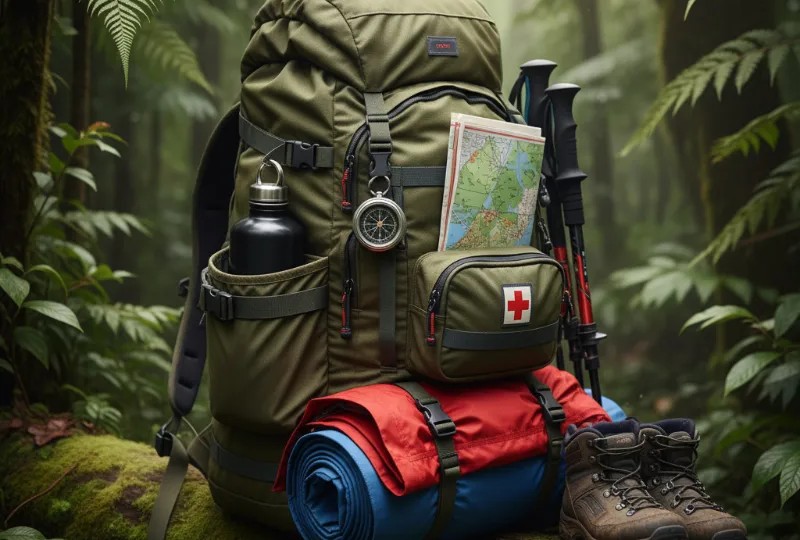
How to Reach Sinharaja Forest Reserve
Sinharaja lies in the southwest of Sri Lanka, stretching across Ratnapura, Galle, and Kalutara districts.
From Colombo, it’s about a 4–5 hour drive.
The most popular entry points are Kudawa (northwest) and Pitadeniya (southern side).
